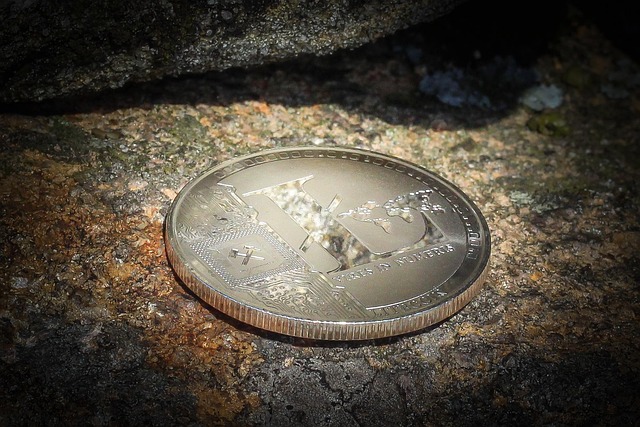Bitcoin (BTC) has risen above $85,000, signaling that the bulls are trying to form a higher low at $83,000. The short-term price action remains susceptible to news related to the US tariffs and the ongoing trade war with China.Gold has been a clear winner during the current bout of macroeconomic uncertainty. Citing data from Bank of America (BoA), The Kobeissi Letter said that gold funds are on track to hit $80 billion in net inflows year-to-date, roughly double the amount seen in 2020. In comparison, spot Bitcoin exchange-traded funds’ net inflows have shrunk to just $165 million after weeks of continuous outflows, per CoinShares data.Crypto market data daily view. Source: Coin360However, some cryptocurrency investors are happy about gold’s rally because a popular theory suggests that Bitcoin not only copies but exceeds gold’s rally with a few months’ lag. Anonymous crypto trader Titan of Crypto said in a post on X that Bitcoin could hit $137,000 by July-August 2025.Could Bitcoin bulls build momentum and push the price above the overhead resistance? Will the altcoins also see a short-term rally? Let’s analyze the charts of the top 10 cryptocurrencies to find out.Bitcoin price analysisBitcoin failed to rise above the 200-day simple moving average ($87,660) on April 15, but a minor positive is that the buyers have sustained the price above the 20-day exponential moving average ($83,289).BTC/USDT daily chart. Source: Cointelegraph/TradingViewThe flattish 20-day EMA and the relative strength index (RSI) near the midpoint suggest the sellers are losing their grip. Buyers will have to propel the price above the 200-day SMA to seize control. If they manage to do that, the BTC/USDT pair could jump to $95,000 and eventually to the psychologically crucial level at $100,000.Contrarily, a break and close below the 20-day EMA indicates that the bulls have given up. That could pull the pair down to $78,500 and later to $73,777.Ether price analysisEther’s (ETH) relief rally stalled at the 20-day EMA ($1,697) on April 14, suggesting that bears remain active at higher levels.ETH/USDT daily chart. Source: Cointelegraph/TradingViewSellers will try to strengthen their position by pulling the price below $1,471. If they do that, the ETH/USDT pair could fall to $1,368. Buyers will try to guard the $1,368 level, but the pair could slump to $1,150 if the bears have their way.The first sign of strength will be a break and close above $1,754. That opens the gates for a possible rally to $2,111. The 50-day SMA ($1,919) may act as a barrier, but it is likely to be crossed. Buyers will have to shove the price above $2,111 to signal that the downtrend may have ended.XRP price analysisXRP (XRP) broke below the 20-day EMA ($2.10) on April 15 and reached near the critical support at $2 on April 16. XRP/USDT daily chart. Source: Cointelegraph/TradingViewThe flattish 20-day EMA and the RSI just below the midpoint suggest a possible range-bound action in the near term. The XRP/USDT pair may swing between $2 and the 50-day SMA ($2.23) for a while.A break and close above the 50-day SMA could clear the path for a rally to the resistance line. This is an important level for the bears to defend because a break above it will signal a short-term trend change. On the downside, a break and close below $2 could sink the pair to $1.61.BNB price analysisBNB (BNB) has been trading inside a triangle, signaling buying near the support line and selling close to the downtrend line. BNB/USDT daily chart. Source: Cointelegraph/TradingViewThe downsloping moving averages and the RSI just below the midpoint indicate a slight edge to the bears. There is support at $566 and then at $550. If the price rebounds off the support, the bulls will again try to shove the price above the downtrend line. If they can pull it off, the BNB/USDT pair could rally to $644.Sellers are likely to have other plans. They will try to pull the price below $550 and retest the support line.Solana price analysisSellers successfully defended the 50-day SMA ($130) in Solana (SOL) and are trying to pull the price below the $120 support.SOL/USDT daily chart. Source: Cointelegraph/TradingViewThe flattish 20-day EMA ($124) and the RSI near the midpoint suggest a balance between supply and demand. Buyers are expected to defend the $120 to $110 support zone. If the price rebounds off the support zone, the bulls will again attempt to drive the SOL/USDT pair above the 50-day SMA. If they succeed, the pair could reach $153.Alternatively, if the price continues lower and breaks below $110, it indicates that bears remain in control. The pair could then tumble to the $95 support.Dogecoin price analysisDogecoin (DOGE) has been gradually sliding to the vital support at $0.14, where the buyers are expected to step in.DOGE/USDT daily chart. Source: Cointelegraph/TradingViewThe positive divergence on the RSI suggests that the bearish momentum could be weakening. If the price turns up from the current level or $0.14, the possibility of a break above the 50-day SMA ($0.17) increases. The DOGE/USDT pair will complete a double-bottom pattern on a break above $0.21, signaling that the downtrend may have ended.Conversely, a break and close below $0.14 signals the resumption of the downtrend toward the next major support at $0.10.Cardano price analysisCardano (ADA) turned down from the 20-day EMA ($0.64) on April 13, indicating that the bears continue to sell on rallies.ADA/USDT daily chart. Source: Cointelegraph/TradingViewSellers will try to strengthen their position by pulling the price below the $0.58 support. If they succeed, the ADA/USDT pair could slump to the critical level at $0.50. Buyers are expected to defend the level with all their might because the failure to do so may extend the downtrend to $0.40.On the upside, buyers are likely to face selling in the zone between the moving averages. A break and close above the 50-day SMA ($0.70) opens the doors for a rally to $0.83.Related: Why is XRP price down today?UNUS SED LEO price analysisBuyers have pushed UNUS SED LEO (LEO) above the 20-day EMA ($9.39), which is a positive sign.LEO/USD daily chart. Source: Cointelegraph/TradingViewThere is minor resistance at the 50-day SMA ($9.58), but the level is expected to be crossed. The LEO/USD pair may then retest the critical overhead resistance of $9.90. If buyers overcome the barrier at $9.90, the pair will complete an ascending triangle pattern. That could start a move toward the target objective of $12.04.Sellers will have to pull and maintain the price below $9.24 to gain the upper hand. That could start a decline to $8.79. Chainlink price analysisBuyers are struggling to propel Chainlink (LINK) above the 20-day EMA ($12.81), but they have kept up the pressure.LINK/USDT daily chart. Source: Cointelegraph/TradingViewThere is minor support at $11.68, but if the level cracks, the LINK/USDT pair could plunge to the support line of the descending channel pattern. Buyers are expected to defend the level, but if the bears prevail, the pair could drop to $8.If buyers want to make a comeback, they will have to kick the price above the moving averages. The pair could then climb to $16 and later to the resistance line. A break and close above the channel signals a potential trend change.Avalanche price analysisThe failure to push Avalanche (AVAX) above the downtrend line may have attracted profit booking by the short-term bulls.AVAX/USDT daily chart. Source: Cointelegraph/TradingViewThe bears are trying to sink the AVAX/USDT pair below the 20-day EMA ($18.98). If they manage to do that, the pair could descend to the $15.27 support. Buyers are expected to vigorously defend the $15.27 level because a break below it may start the next leg of the downtrend to $14 and then $12.The first sign of strength will be a break and close above the downtrend line. That opens the doors for a rally to $23.50. If buyers overcome this barrier, the pair will complete a double-bottom pattern with a target objective of $31.73.This article does not contain investment advice or recommendations. Every investment and trading move involves risk, and readers should conduct their own research when making a decision.





